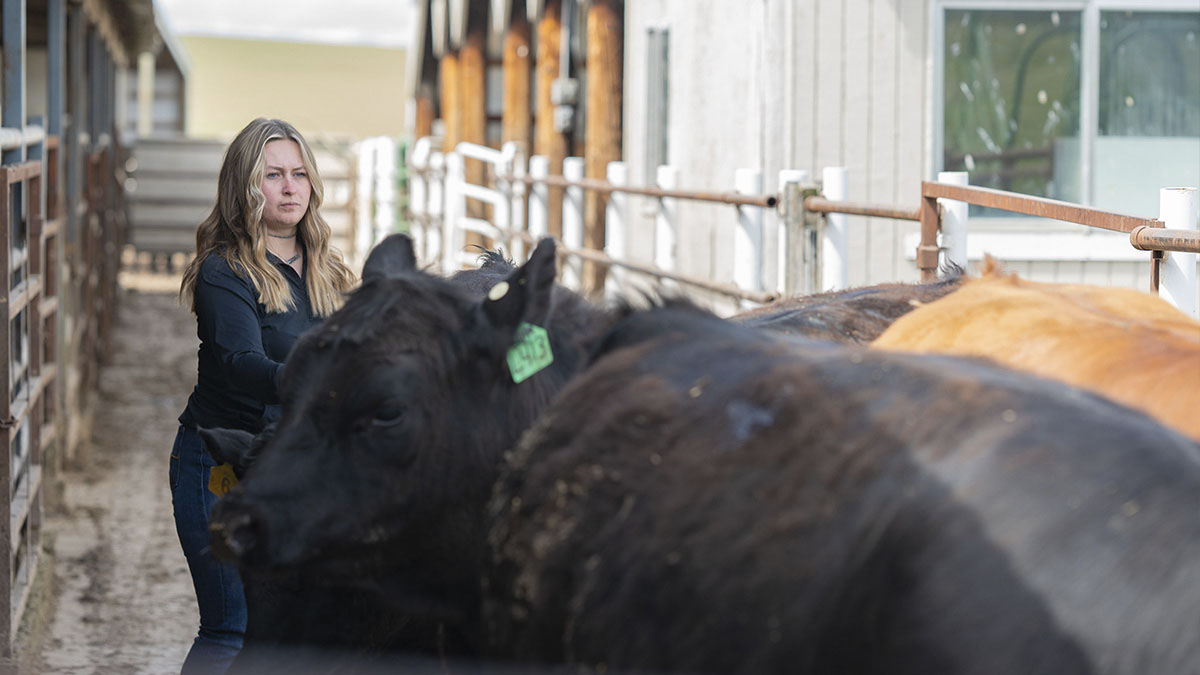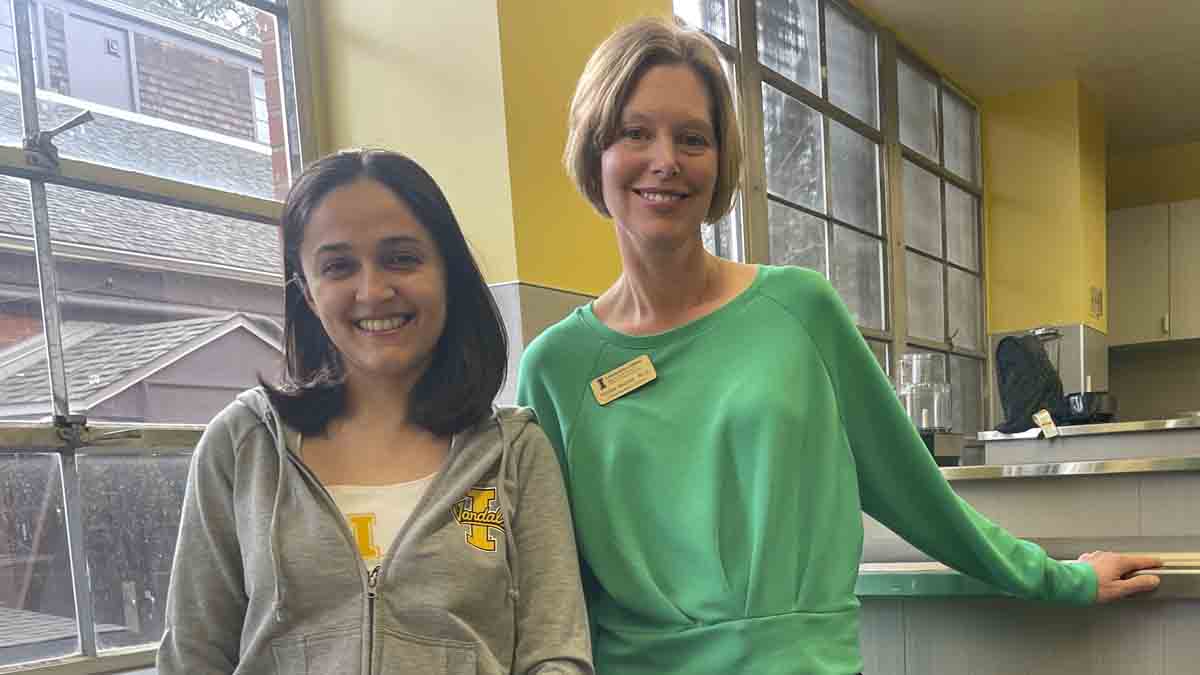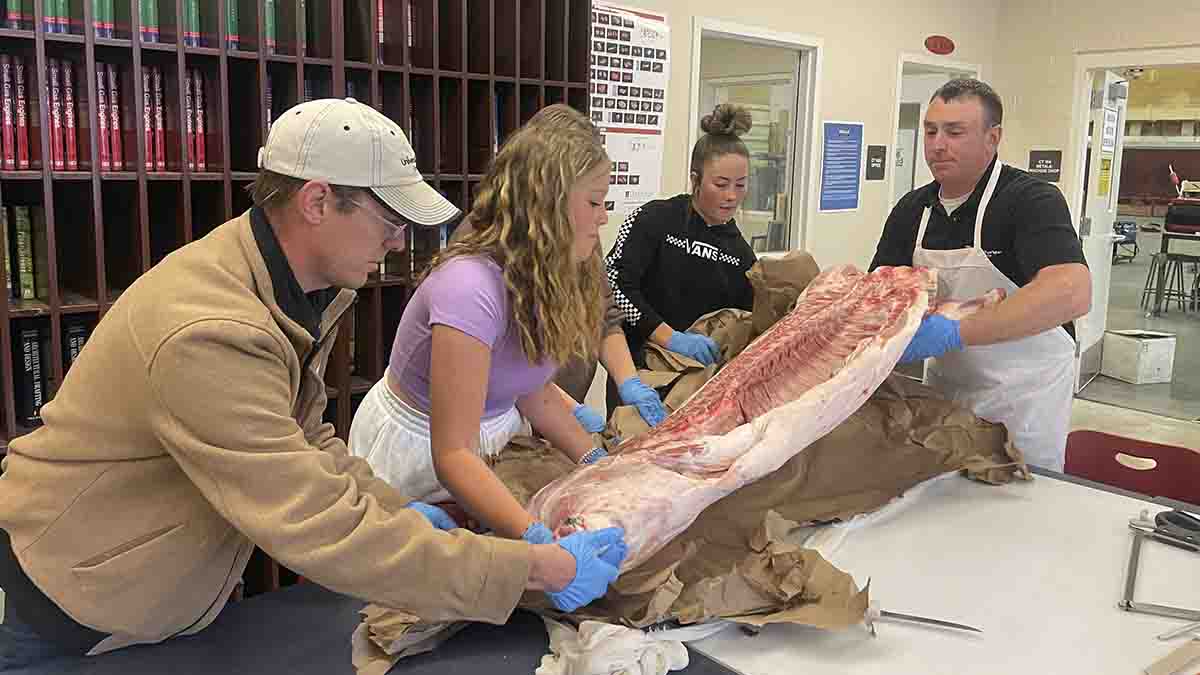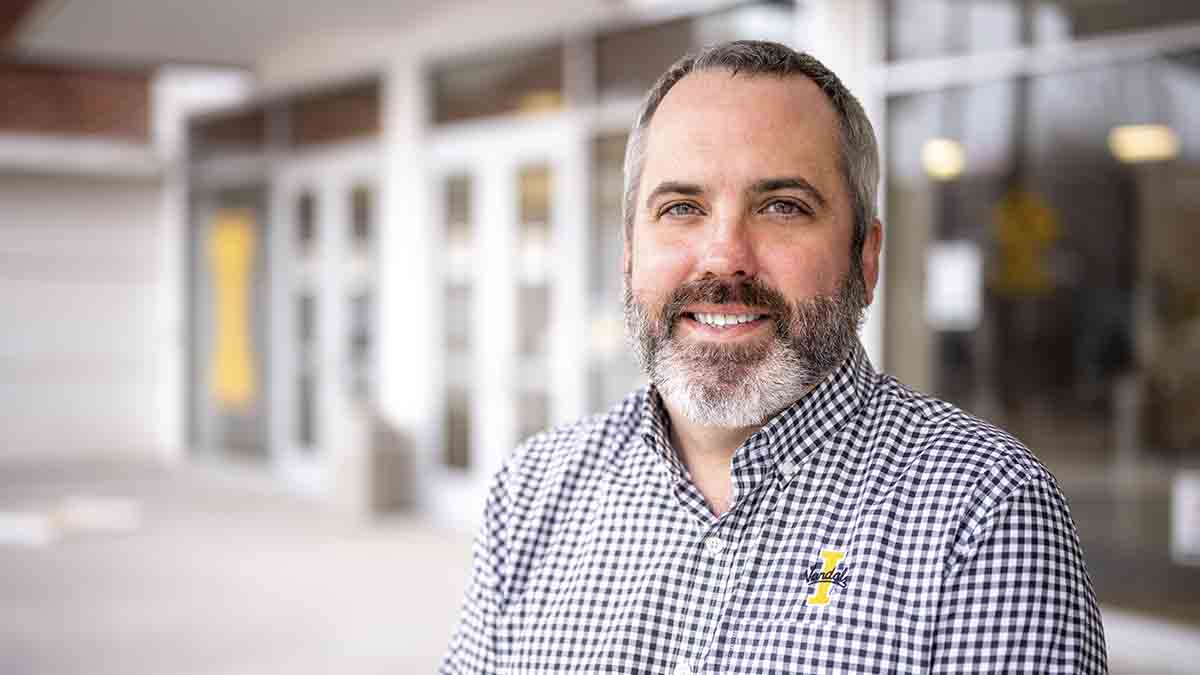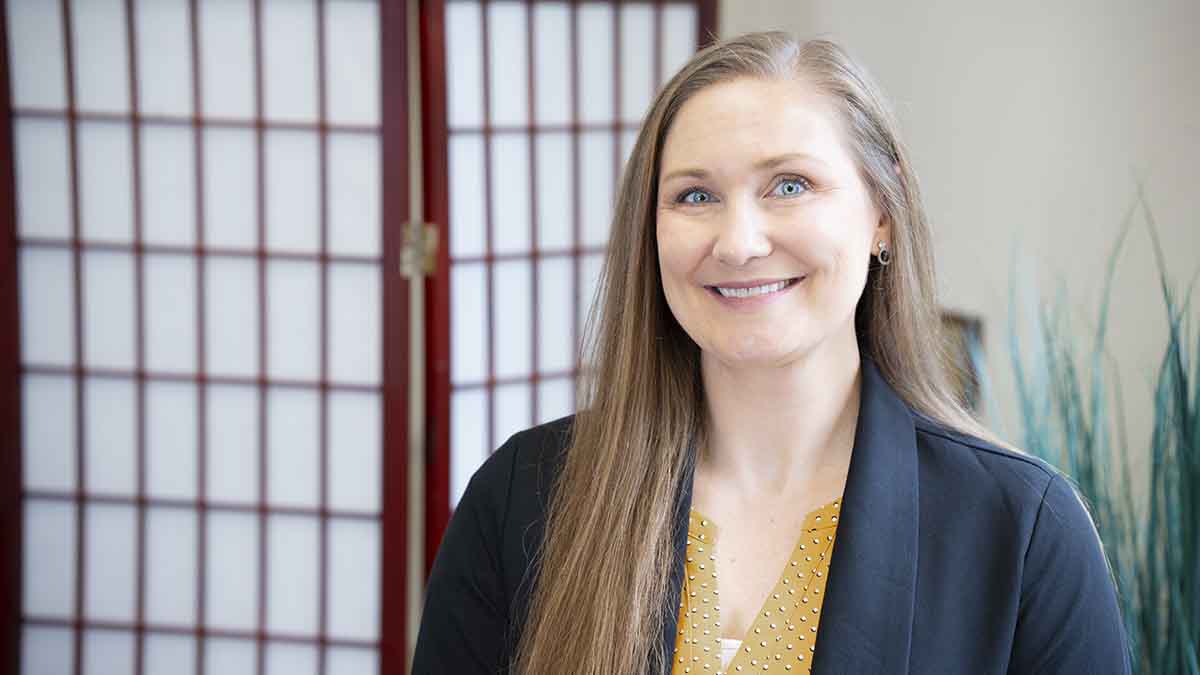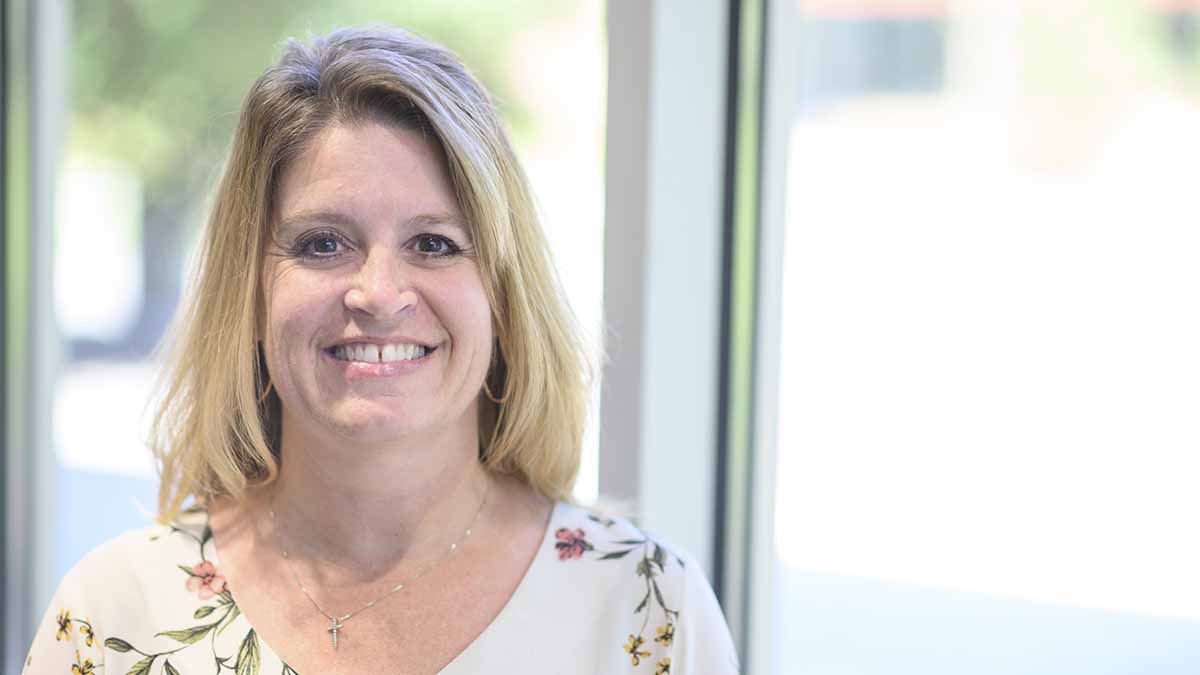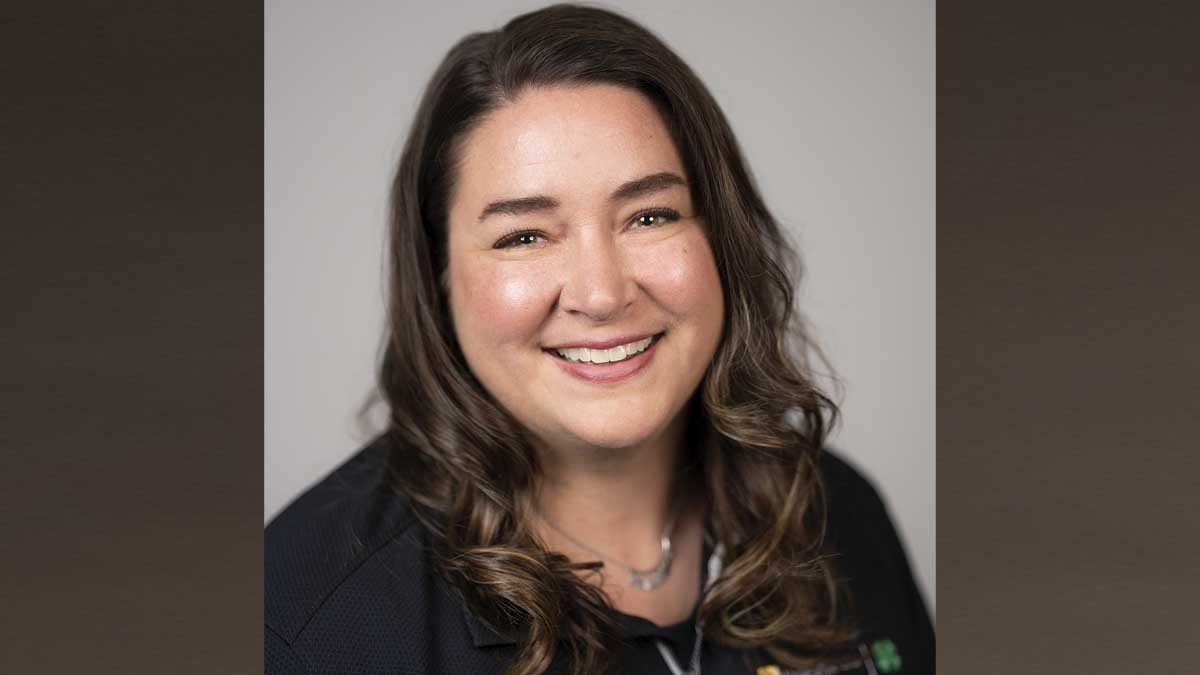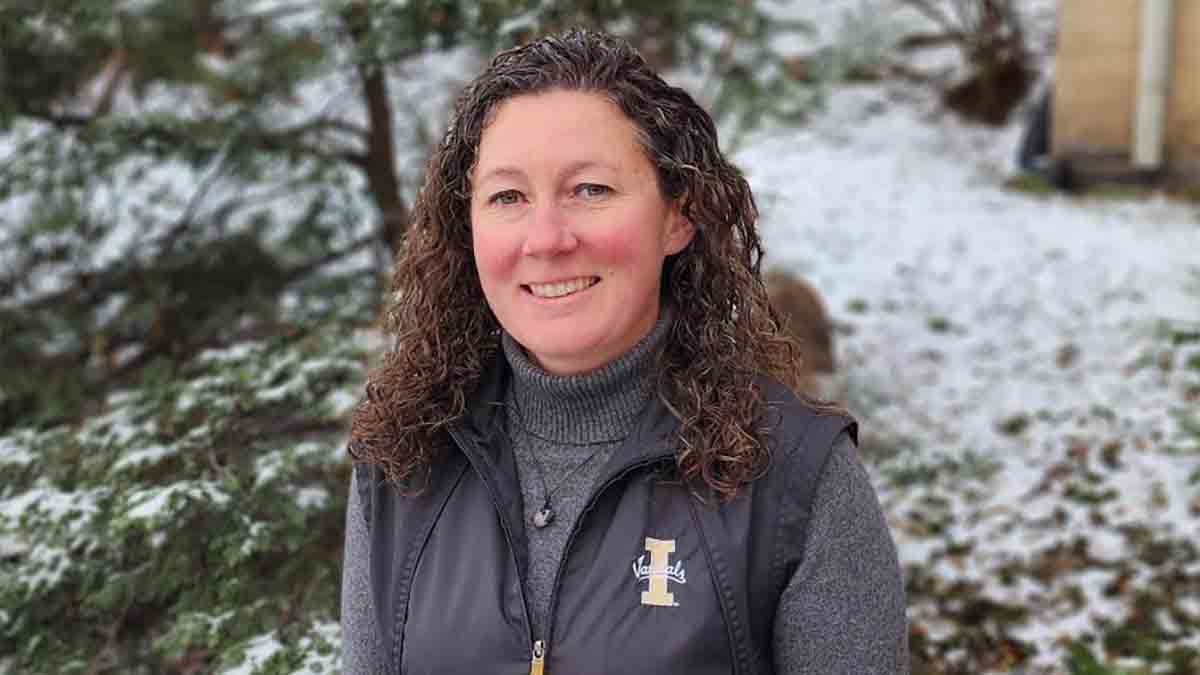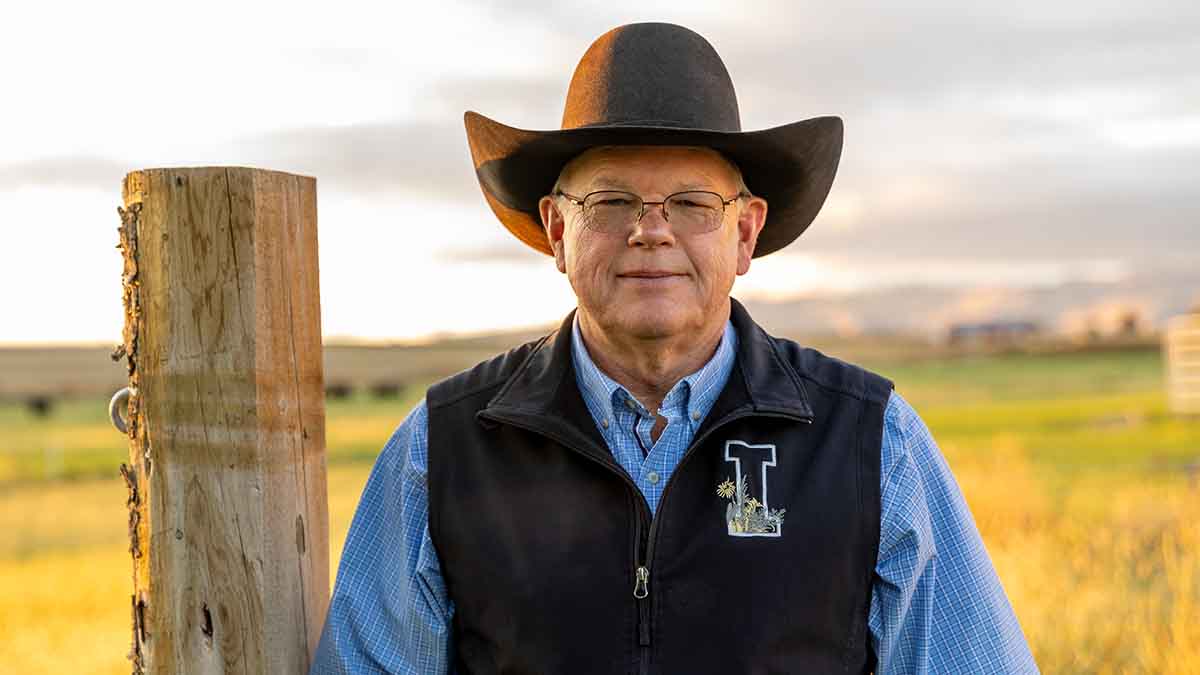Catching Up with CALS — May 15, 2024
Dean's Message — Reason to Celebrate
On Saturday afternoon, CALS honored another group of outstanding graduates who are poised to make remarkable contributions to Idaho agriculture and family and consumer science related fields, continuing a winning streak for the college. Friends and family members celebrated with 119 undergraduates, 33 master’s students and five doctoral students who received degrees from CALS during Spring Commencement. It’s an especially strong group of CALS graduates when combined with the 52 undergraduates, six master’s students and four doctoral students who were awarded degrees last December. Congratulations graduates! Finishing college is an impressive achievement, and we’re certain you are all well prepared to hit the ground running in your respective occupations.
CALS faculty, you should also take a bow. You’ve played a major part in attracting these outstanding students, equipping them with the knowledge to succeed and helping them overcome adversity. In CALS, we have a lot to cheer about. We’ve led the campus in first-year retention rates during four of the past five years. While advising at U of I is typically done by professional advisors, faculty perform most CALS student advising and participate in student recruitment, in addition to their many other duties. This approach further breeds trust, familiarity and collaboration between our faculty and students. “It’s worked very effectively in CALS. Our faculty realize the impact they can have as academic advisors and mentors for students, and they take that role seriously,” explained Matt Doumit, senior associate dean and director of academic programs. “If there’s a secret sauce to our retention, it’s the community we try to build here and the interaction students have with faculty and staff.” Faculty also aid students in pursuing career paths, helping them make industry connections, prepare for job interviews and even land employment before graduating. It’s telling that in separate exit surveys of graduates, Bob Collier, head of the Department of Animal, Veterinary and Food Sciences, and Chris McIntosh, head of the Department of Agricultural Economics and Rural Sociology, both reported students overwhelmingly cited interactions with faculty and staff as the best part of their U of I experience. To further improve student retention, we’re in the process of hiring a retention specialist — a unique position on campus tasked with supporting faculty advisors and providing special assistance to students who are at a heightened risk of leaving.
For the past two years, CALS has also had the university’s best four-year graduation rate. Those graduates must be replaced with new enrollment, however. We’re delighted that college seekers appear to be taking notice of our successes. Our enrolled students are tracking similar with last year when we brought in a record freshman class. Furthermore, the college already has over 1,000 admitted students — which is the largest group we’ve had in at least the past seven years. The challenge to all is converting those admitted students into enrolled students. We’ve been doing quite a few things right as a college, and that’s reflected in our continued growth and our students’ success. To our new graduates, you’ve worked hard and deserve to enjoy this moment. Hats off to our graduates, and cheers to four years!

Michael P. Parrella
Dean
College of Agricultural and Life Sciences
By the Numbers
In 2023, University of Idaho Extension hosted 241 participants at cereal schools in 6 locations throughout eastern Idaho. Of those who completed the survey, 32 were farmers who collectively manage 66,489 acres and estimated they would save $229,425 by implementing what they learned while attending the cereal schools.
Our Stories

Cattle Calling
Taylor Dixon grew up with an appreciation for agriculture, but her passion and decision to dedicate her career to the industry came when she joined the Kuna FFA Chapter in high school. She tried showing pigs and goats, but when she started working with cattle she was hooked.
“I wanted to be an equine vet but that changed pretty quick after I started to work with cattle,” she said. “Working with cattle, it’s a lot of hard work but it’s exciting and very rewarding.”
Dixon’s FFA advisor encouraged her to continue her education in animal sciences at the University of Idaho. She will graduate with a degree in animal and veterinary sciences: production option in May 2024 and embark on her career as a feedlot trainee with Five Rivers Cattle Feeding at their Interstate Feedlot in Malta.

Proactive Health Approach
Firuza Allahguliyeva recognized a major missed opportunity in her six years of working as a pharmacist for the Ministry of Health of the Republic of Azerbaijan.
She approved drugs and supplied them to hospitals in her native country — a former Soviet republic with a developing economy located at the boundary of Eastern Europe and West Asia. But Allahguliyeva began to feel she’d be better served by intervening earlier and helping patients make lifestyle changes to avoid health problems.
Allahguliyeva is now pursuing a new career path, as a Fulbright Scholar enrolled in the graduate-level dietetics program at University of Idaho’s Margaret Ritchie School of Family and Consumer Sciences.
“When you dive into pharmacy, you know all about the drugs, how they work and their side effects, but sometimes it’s late,” Allahguliyeva said. “I was thinking it’s better to prevent the disease than treat the disease because the medicine has a bunch of side effects.”
Allahguliyeva, who earned bachelor’s and master’s degrees in pharmacy from Azerbaijan Medical University, arrived in Moscow last fall and is completing her prerequisites. She’ll begin the dietetics master’s program next fall.
The prestigious Fulbright Program, which is the U.S. government’s flagship program of international educational and cultural exchange, identified U of I as the best fit for Allahguliyeva. U of I was among a select group of schools willing to qualify applicants for its dietetics master’s program with an undergraduate degree in another discipline, such as pharmacy.
“I realized I was reading more nutrition-related articles than drug-related articles. I realized my interest in this area was increasing and increasing,” Allahguliyeva said. “I decided to do my research to find the best country to follow dietetics.”
She plans to become a clinical dietitian, which would allow her to put both her knowledge in pharmacy and dietetics to use. Her primary interest is in weight management, which is a significant problem in Azerbaijan.
Dietetics Director Hydee Becker, who will be Allahguliyeva’s advisor, considers it exciting for the school to welcome a Fulbright Scholar with such a unique educational background.
“She has a lot to offer the other students in her cohort,” Becker said. “Students learn from each other.”
Beyond her own career aspirations, Allahguliyeva has set a goal of increasing awareness of dietetics among Azerbaijan’s medical professionals. She hopes to collaborate with her country’s healthcare sector on a needs assessment about requiring a single course on malnutrition in medical school.

A Cut Above
Madison High School sophomore Tayton Price didn’t hesitate to pick up a bone saw and start carving large pieces from the pig carcass at his group’s table, mimicking a demonstration University of Idaho meat scientist Phil Bass gave at the start of class.
Throughout the remainder of the 70-minute period, four groups of beginning animal science students took turns dividing their pig carcass into primal cuts — which are large sections of meat that are the first to be separated during butchering, including the shoulder, leg, loin and side.
Bass made the trip from Moscow to guest teach at the Rexburg high school on May 7, introducing youth to meat science as an often overlooked but rewarding career that pays well and desperately needs labor. Bass hopes it will be the first of many meat-cutting demonstrations and lessons he’ll host in Idaho high schools in the coming years.
For Price, the class was a highlight of the school year and an eye-opening experience. Price said he can envision himself working as a meat cutter. At the minimum, he’s an avid hunter, and the skills should pay off when he next harvests a deer.
“You actually get to see the specific cuts and the primals,” said Price, who worked with a surgeon’s confidence and precision. “I had done this with my grandpa one time when I was younger. I think I know a lot of the basics, but it’s definitely good to learn more.”
During the activity, students impressed Bass by correctly identifying several bones and muscle groups. Many of them echoed vocabular terms Bass used in his demonstration as they surveyed the spareribs, roasts, bacon and sausage meat they’d carved. The class will continue the lesson with their agriculture teacher, Patrick Dixon, further breaking the meat down into sub-primal and retail cuts.
Dixon is a 2005 U of I agricultural education graduate who takes FFA members to annual meat science competitions run by Bass. Dixon also serves on the board of directors for the Steer-A-Year program within U of I’s College of Agricultural and Life Sciences. Dixon and Bass planned the cutting demonstration during a Steer-A-Year meeting last fall. Dixon believes the experience should make his students better consumers, able to prepare meat properly and spot the best buys. He’s also receptive to any experience that raises their awareness of career options.
“I think the industry is starving for good meat cutters, and I think when you get somebody like Phil Bass here, who is an expert in that industry, I think maybe he opens some doors for those kids,” Dixon said. “If they are interested in doing this someday, he has connections or pathways to help direct some of those kids into that field.”
To improve its facilities and meet increasing demand in the field, U of I has broken ground on a 12,750-square-foot abattoir that should open in the fall of 2025, to be called the Meat Science and Innovation Center Honoring Ron Richard. Bass emphasized new meat plants are also opening throughout Idaho, including two new beef plants in Idaho Falls, a new beef plant in Kuna, a new beef plant in Jerome and several other small operations that are growing and will need additional staff.
Out of high school, workers can earn at least $20 per hour on the floor of a meat plant. U of I offers a four-year bachelor’s degree in animal and veterinary science: production option that prepares graduates for higher-paying managerial jobs in meat processing.
“This is a new thing we’re trying to do. We’re trying to help folks realize there are career opportunities in meat processing, and most young kids don’t even get an opportunity to see animals and carcasses,” Bass said. “This is a chance for them to get exposed to it. I hope this is just the beginning of something big.”
Faces and Places
Michael Strickland, associate professor in the Department of Soil and Water Systems received the University of Idaho Postdoctoral Mentoring Award. This award recognizes faculty who have demonstrated exceptional support and guidance for U of I postdoctoral scholars/fellows.
Annie Roe, associate professor in the Margaret Ritchie School of Family and Consumer Sciences and director of Eat Smart Idaho, received the University of Idaho Presidential Mid-Career Award. This award acknowledges achievements made by gifted faculty during the middle of their career, who have demonstrated a commitment to outstanding scholarship, teaching and engagement.
Tammy Greenwalt, financial specialist in CALS Administrative Services received the University of Idaho Outstanding Employee Award: Technical/Paraprofessional. This award recognizes quality of service, exceptional effort, initiative and interpersonal relationships.
4-H STEM Area Extension Educator Claire Sponseller was named by the Idaho Out-of-School Network as a 2024 Afterschool Champion. This annual award recognizes individuals for their outstanding contributions to youth programs and communities.
Tamara Goetz, regional UI Extension educator, 4-H youth development, has been awarded a $3,900 grant from the Rocky Mountain Elk Foundation to support Idaho youth delegates in competing at the National Championships for 4-H Shooting Sports to be held in Grand Island, Nebraska in June. Additional funds will be allocated for statewide First Shot Fundamentals education and promotional training.
The state 4-H team is asking people who have benefited from the University of Idaho Extension 4-H Youth Development program to share their 4-H stories so they may be shared with state stakeholders and partners. A 4-H story describes the positive impact of personal growth and success that 4-H involvement has had on a young person’s life.
The state 4-H team is asking UI Extension employees to share their candid photos and videos featuring their favorite aspects of Idaho to be shared on social media to help promote the NAE4-HYDP conference that will be hosted Oct. 15-17 in Boise. Video and image prompts will include favorite things to do in Idaho, hotspots to see when visiting Idaho, reasons to love being an Idahoan and exciting things you are doing in your role with UI Extension.
Scott Jensen, UI Extension area range educator, will become president of the National Association of County Agricultural Agents on July 17 during the organization’s national meeting in Dallas.






Events
- May 23 — Winter Canola Tour, 8:30 a.m. to 1 p.m., Cottonwood
- May 31-June 1 — Walla Walla and Red Mountain Vineyard and Winery Tour (pdf), leaves Moscow for southeastern Washington at 8:30 a.m.
- June 18-19 — Western Wheat Workers Meeting, Idaho Falls, Aberdeen
- June 18-19 & July dates — Cereals Field Days (pdf), various locations
- June 22-23 — Grass Identification Course, Rinker Rock Creek Ranch near Hailey
- June 24 — Soil Health and Cropping Systems Tour, 8 a.m. to noon, Genesee
- June 24-26 — Data Monitoring Blitz, Rinker Rock Creek Ranch near Hailey
- June 26 — Farm Stress Workshop, Twin Falls
- June 28 — 4-H Dairy Judging Contest, Solid Rock Ranch, Nampa
- July 2 — 4-H Livestock Quiz Bowl, UI Extension office in Gooding County
- July 8-9 — 4-H Horse Contests, Rigby Rodeo Grounds, Jefferson County Fairgrounds, Rigby High School Ag Building
- July 8-10 — Beef 101: Beginning Rancher Development Program, Moscow
- July 17 — Twilight Tour, Aberdeen Research and Extension Center







